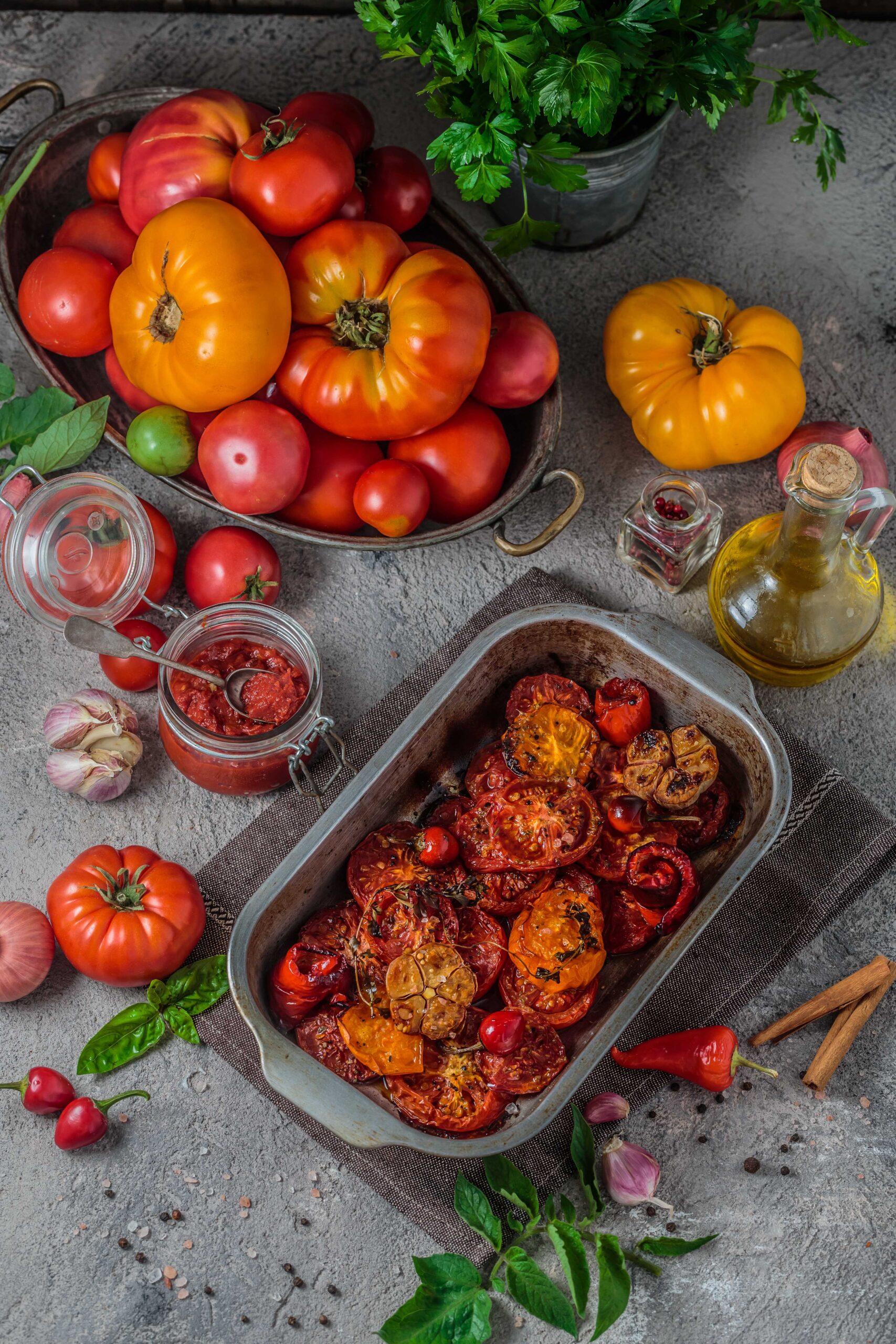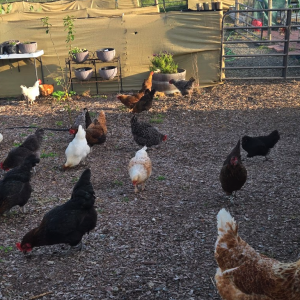Traditional Jordanian Olive Recipes
Jordanian cuisine extensively uses olives and olive oil, not just as a condiment but as a key ingredient in various dishes. Here are some of the most famous and authentic Jordanian recipes featuring olives and olive oil.
1. Makdous (Pickled Stuffed Olives)
Makdous is a traditional Jordanian dish of pickled baby eggplants stuffed with walnuts, garlic, and chili, preserved in olive oil. It is a staple breakfast and mezze dish.
Ingredients:
- 1 kg baby eggplants (small and firm)
- 2 cups walnuts (finely chopped)
- 5 cloves garlic (minced)
- 2 tbsp red chili flakes (optional)
- 2 tbsp salt
- 1 liter extra virgin olive oil
Instructions:
- Boil the eggplants in salted water for 5 minutes, then drain and let them dry completely.
- Make a small slit in each eggplant and stuff it with a mixture of walnuts, garlic, and chili flakes.
- Press them lightly and place in a sterilized jar.
- Cover completely with extra virgin olive oil and let it ferment for 10–14 days before eating.
Serving Suggestion: Eat it with fresh bread, labneh, or hummus.
2. Zait o Zaatar (Olive Oil & Thyme Dip)
A simple yet essential Jordanian breakfast item where bread is dipped in olive oil and then zaatar (a mix of thyme, sumac, and sesame).
Ingredients:
- ½ cup extra virgin olive oil
- ½ cup zaatar spice mix
- Fresh pita bread for dipping
Instructions:
- Pour the olive oil into a small bowl.
- Place zaatar in another small bowl.
- Dip fresh bread first in the olive oil, then in the zaatar.
Optional: Add labneh (strained yogurt) for extra richness.
3. Rummaniyeh (Olive & Pomegranate Stew)
A unique Jordanian dish combining olives, lentils, and pomegranate for a tangy, hearty meal.
Ingredients:
- 1 cup green olives (pitted and sliced)
- 1 cup lentils (soaked overnight)
- 1 medium onion (chopped)
- 1 cup fresh pomegranate juice
- 2 tbsp pomegranate molasses
- 2 tbsp olive oil
- 1 tsp cumin
- ½ tsp black pepper
- Salt to taste
Instructions:
- In a pot, heat olive oil and sauté the onions until golden.
- Add the lentils and cook until soft (about 20 minutes).
- Add green olives, pomegranate juice, molasses, cumin, salt, and pepper.
- Simmer for 10 more minutes until thick.
- Drizzle with extra olive oil before serving.
Serving Suggestion: Eat with pita bread or rice.
4. Olive & Tomato Galayet Bandora (Jordanian Sautéed Tomatoes)
Galayet Bandora is a simple and flavorful tomato and olive dish commonly eaten for breakfast or light lunch.
Ingredients:
- 3 tbsp extra virgin olive oil
- 4 ripe tomatoes (chopped)
- 2 cloves garlic (minced)
- ½ cup green or black olives (sliced)
- ½ tsp salt
- ½ tsp black pepper
- ½ tsp chili flakes (optional)
Instructions:
- Heat olive oil in a pan and sauté garlic until fragrant.
- Add chopped tomatoes and cook until they soften.
- Stir in the olives, salt, black pepper, and chili flakes.
- Cook for another 5–7 minutes until thick.
Serving Suggestion: Eat with flatbread or rice, topped with fresh herbs.
5. Jordanian Olive Salad (Salatat Zaytoon)
A refreshing olive salad often served as part of mezze.
Ingredients:
- 1 cup black and green olives (pitted and chopped)
- ½ cup tomatoes (diced)
- ½ cup cucumbers (diced)
- ¼ cup red onions (chopped)
- 2 tbsp fresh parsley (chopped)
- 2 tbsp extra virgin olive oil
- 1 tbsp lemon juice
- ½ tsp sumac
- Salt and pepper to taste
Instructions:
- Combine all ingredients in a bowl.
- Toss well and let it sit for 15 minutes before serving to absorb flavors.
Serving Suggestion: Enjoy with grilled meats, falafel, or hummus.
6. Olive Oil Cake (Basbousa with Olive Oil)
A Jordanian take on semolina cake, using olive oil instead of butter.
Ingredients:
- 1 ½ cups semolina
- ½ cup extra virgin olive oil
- ½ cup sugar
- 1 cup plain yogurt
- 1 tsp baking powder
- 1 tsp vanilla
- ½ cup almonds or pistachios for topping
- ½ cup sugar syrup (for soaking)
Instructions:
- Preheat oven to 180°C (350°F).
- Mix semolina, olive oil, sugar, yogurt, baking powder, and vanilla.
- Pour into a greased pan and bake for 25 minutes.
- Drizzle with sugar syrup while hot and let it soak.
- Garnish with almonds or pistachios before serving.
Serving Suggestion: Pair with tea or Arabic coffee.
7. Traditional Jordanian Olive Paste (Zeitoun Makbous)
A savory olive spread made with garlic, chili, and olive oil.
Ingredients:
- 1 cup black olives (pitted)
- 1 cup green olives (pitted)
- 2 tbsp extra virgin olive oil
- 2 cloves garlic (crushed)
- 1 tsp red chili flakes
- 1 tbsp lemon juice
- 1 tsp oregano or zaatar
Instructions:
- Blend all ingredients into a coarse paste.
- Adjust seasoning and drizzle with olive oil before serving.
Serving Suggestion: Use as a dip with bread or spread over grilled meats.
Final Thoughts
Jordanian cuisine showcases olives and olive oil in countless ways, from savory stews to sweet treats. Whether you’re dipping bread in zeit o zaatar or enjoying a warm plate of galayet bandora, olive oil remains at the heart of Jordanian cooking.













